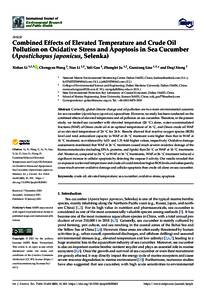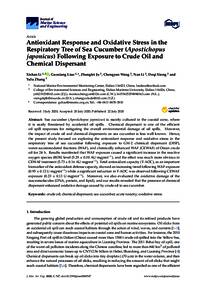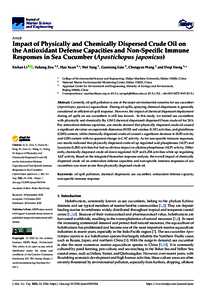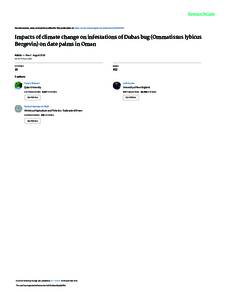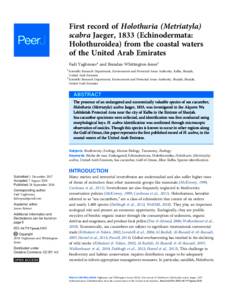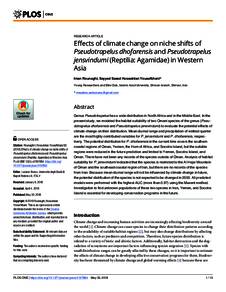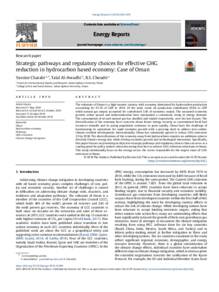وثيقة
Combined effects of elevated temperature and crude oil pollution on oxidative stress and apoptosis in sea cucumber (apostichopus japonicus, selenka).
المعرف
DOI: 10.3390/ijerph18020801
المصدر
International Journal of Environmental Research and Public Health. v. 18, 2, 801, p. 1-16
المساهمون
Wang, Chengyan., مؤلف
Li, Nan., مؤلف
Gao, Yali., مؤلف
Ju, Zhonglei., مؤلف
Liao, Guoxiang., مؤلف
Xiong, Deqi., مؤلف
الدولة
Switzerland
مكان النشر
Basel
الناشر
MDPI AG.
ميلادي
2021-01-02
اللغة
الأنجليزية
الملخص الإنجليزي
Currently, global climate change and oil pollution are two main environmental concerns for sea cucumber (Apostichopus japonicus) aquaculture. However, no study has been conducted on the combined effects of elevated temperature and oil pollution on sea cucumber. Therefore, in the present study, we treated sea cucumber with elevated temperature (26◦C) alone, water-accommodated fractions (WAF) of Oman crude oil at an optimal temperature of 16◦C, and Oman crude oil WAF at an elevated temperature of 26◦C for 24 h. Results showed that reactive oxygen species (ROS) level and total antioxidant capacity in WAF at 26◦C treatment were higher than that in WAF at 16◦C treatment, as evidenced by 6.03-and 1.31-fold-higher values, respectively. Oxidative damage assessments manifested that WAF at 26◦C treatment caused much severer oxidative damage of the biomacromolecules (including DNA, proteins, and lipids) than 26◦C or WAF at 16◦C treatments did. Moreover, compared to 26◦C or WAF at 16◦C treatments, WAF at 26◦C treatment induced a significant increase in cellular apoptosis by detecting the caspase-3 activity. Our results revealed that co-exposure to elevated temperature and crude oil could simulate higher ROS levels and subsequently cause much severer oxidative damage and cellular apoptosis than crude oil alone on sea cucumber.
ISSN
1661-7827
URL المصدر
قالب العنصر
مقالات الدوريات

